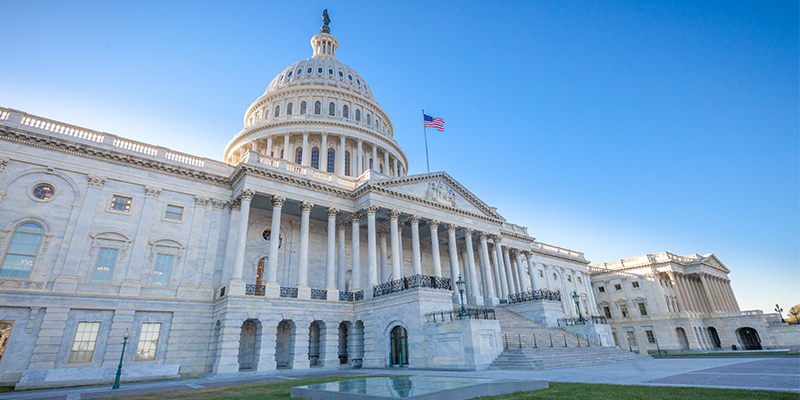August has arrived, which for Capitol Hill means that Congress is in recess until sometime in September. Senators, congressional representatives and staff members scatter across the world on congressional delegation trips (so-called “codels”), and back to their home districts to meet with constituents, host fundraisers and boast about their legislative achievements. Well, perhaps all of those things are true with the exception of the last bit.
The reality is that Congress left town last Friday with little agreement on a path forward for must-pass appropriations bills to keep the federal government operating past the start of the new fiscal year on Oct. 1. While congressional Democrats have been given their talking points on the economy by the White House, House Republicans had hoped to be much further along on their agenda to limit government spending by the time of the August recess. But only one of 12 appropriations bills that need to be passed and signed into law by the start of the new fiscal year has advanced in the House. And disagreement among Republicans on a proposed tax package has clouded the outlook for any tax legislation making into law this year.
With the Senate returning on Sept. 5 and the House on Sept. 12, Congress will have only 12 legislative days when they are both in session when they can pass and reconcile appropriations bills before federal agencies will have to shut down much of their operations. While many expect Congress to pass a stopgap measure, known as a “continuing resolution,” to keep the government running at current levels to give themselves more time to negotiate, agreement on that is not necessarily assured. Spending hawks have threatened to vote against temporary measures. With only a five-seat vote margin, House Speaker Kevin McCarthy (R-CA) has little room to operate.
At the same time, September promises to be a critical time on a host of issues important to NAIOP and commercial real estate, including tax incentives for adaptive reuse of underutilized commercial buildings, regulatory policy on wetlands and new federal climate disclosure rules. These will compete for congressional attention in what promises to be a jam-packed September.
Providing federal tax incentives to spur conversion of underutilized or vacant office properties and other non-residential commercial structures to multifamily housing is a top NAIOP priority. It is no secret that office markets were particularly affected by the pandemic and the resulting rise of hybrid work in the labor force. The results included fewer space needs for tenants, reduced economic activity in cities, and lessened property and sales tax revenues for local governments, leading some scholars to refer to the situation as the “office real estate apocalypse.” With many of these communities also facing a serious lack of supply of affordable housing, a number of these buildings could be converted to residential use provided some of the conversion costs could be reduced.
NAIOP’s government affairs staff has been working closely with several members of the House Ways and Means Committee and their staff on what would be a bipartisan bill to provide such an incentive. A tax credit similar to the existing federal historic preservation tax credit would be available for 20% of the eligible costs to convert a commercial structure to housing, with an affordable housing component required. While similar legislation had been introduced in the prior Congress, those bills were overly limited in scope and did not advance. Broader adaptive reuse tax credit legislation that afforded more flexibility was set to be introduced prior to the August congressional recess, but additional time was needed for technical legislative drafting of bill provisions. As a result, introduction of the legislation is anticipated when the House returns in September.
Much attention will also be focused on regulatory policy in September, with the Biden administration having to rethink and recalibrate on two regulations important to NAIOP that will make their reappearance after Supreme Court decisions called into question their validity. On the “Waters of the United States” (“WOTUS”) regulation, which the Biden administration issued in final despite a pending Supreme Court case, the Environmental Protection Agency (EPA) and the Army Corps of Engineers were forced to suspend the rule after an adverse ruling by the court, announcing they would revise the rule and reissue it in September, without opportunity for public input. The second, involving a proposed climate disclosure regulation by the Securities and Exchange Commission (SEC) with major implications for real estate issued in March of 2022 and scheduled to be finalized earlier this year, was delayed by the SEC and may be scaled back to some extent to ensure it does not run afoul of Supreme Court rulings.
With looming fights over appropriations, tax legislation and regulations, September is expected to be a very busy, and brutal, month for Congress.








